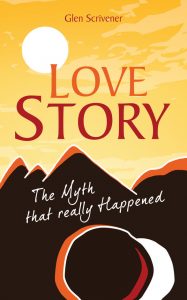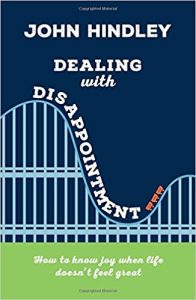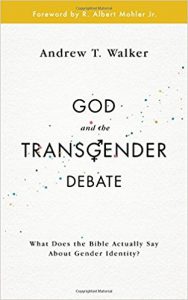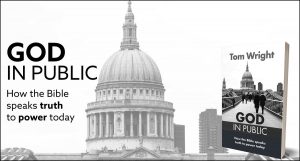All posts by Jon Gemmell
Proclaimer Blog
Cross Cultural Preaching Training Day Report [John Miller]
Benin, Cuba, India, Kenya, Malaysia, Myanmar, Nepal, Romania, South Africa, South Korea, Togo. Just a few of the nations visited by those who gathered for the PT Cross Cultural Preaching Training in October. It was a wonderful day meeting with brothers who shared a concern to see expository preaching develop and flourish around the world.

We were envisioned from Isaiah 19 and God’s global gospel goal – his guaranteed plan to gather the nations to worship Him for eternity, even from those who might seem least likely to do so. We were humbled as we considered the character needed for cross-cultural preaching training and the importance of humility, integrity, servant-hearted flexibility and patience.

We were reminded of key convictions about expository preaching and the nature of training preachers. We were helped by Neil Watkinson generously sharing masses of resources and his experience in running training courses, thinking through the content and style of such training. We were equipped in thinking about the cultural differences we might face and how best to consider and speak into those different cultures. We were encouraged as we talked with each other over food about different experiences we had faced in different settings. We were strengthened as we prayed together, depending on our Father for help in this ministry.
A super day that was hugely encouraging and stimulating, both for those who were new to teaching overseas and for those who have done so for years.
Many thanks to Neil Watkinson and the PT team for laying on the day.
Proclaimer Blog
Transgender – [Vaughan Roberts]
This is a very short book (67 pages) and aims to “give you an accessible introduction to the many questions that surround the transgender issue, as we hold our questions up to the big story of the Bible: the story of creation, fall, redemption, and glorification.” It is written for Christians and is highly accessible and readable.
The book is essentially structured into three parts.
The first two chapters deal with what ‘transgender’ is, the problems people who have gender dysphoria face, and how our culture responds to it. It has useful facts, figures and the outcomes of studies. Roberts was careful to express love and sympathy to the LGTBI community and encourage people not to judge. He is also very careful to say that having these sorts of feelings are not a sin in themselves. These chapters also tackle the swift move of our culture to being completely about the individual. It discusses how we are pushed to just ‘be ourselves’ and ‘define our own identity’. In light of this the reaction of our culture will always be ‘yes!’ to people who want to be their ‘true selves’, such as people who have gender dysphoria.
The second part of the book (chapters 3-5) is an overview of the bible. It explains creation, the Fall and then rescue by Jesus with passing references to gender dysphoria and same sex attraction. This is the majority of the book. It is right and vital for us to use the Gospel as a way of explaining and shining truth on every difficult issue.
The final part is the last chapter, titled ‘Wisdom’. I thought this chapter was the best and I would have loved more, it was very brief. It is about how to apply the bible overview to specific situations lovingly and without putting people who are transgender in their own special category.
There were some parts of the book that I was not totally at ease with. I thought the binary response of Yuck or Yes to transgenderism was slightly insensitive. I also longed for some wisdom about how churches could set about loving and serving people in their turmoil would have been helpful.
Overall, if you know very little about the topic and would like a brief introduction that is sound and biblical this is the book for you. These 67 pages are a wonderful introduction and an excellent starter on what is a complex topic that we need all the help we can get to understand and respond wisely to.
Useful for: Anyone who wants an introduction to this complex topic.
Reading level: Very accessible and easy to read.
Price: RRP £2.99
ISBN: 9781784981952
Publisher: The Good Book Company
Rating: *****
Proclaimer Blog
Love Story – [Glen Scrivener]
Love Story – The Myth that really happened – Glen Scrivener (reviewed by R. Brown on 9/10/17)
This short accessible book presents the Easter Story as a ‘True Love Story’ or ‘The Myth that really happened.’ It addresses the secular view that the bible story is a myth and seeks to dispel this and defend the bible account as true. Scrivener does this by showing that whilst the Easter Story has all the ingredients of a great fairy tale, it is in fact not myth but truth that centres around Jesus Christ as the historical hero.
It may have been written with the sceptic in mind but it is also a book that helps the believer think more carefully about using true-story-telling to resonate with the world, something increasingly potent in todays world.
Scrivener begins with the backstory to Easter. He draws clear reference to love being the thread from the beginning, in the very nature of the triune God. He continues the love story theme in each chapter walking the reader through Love Stoops – Jesus washing his disciples feet | Love Suffers – Jesus in Gethsemane | Love Sacrifices – Jesus’ crucifixion | Love Stands – Jesus’ resurrection.
At each stage Scrivener engages the reader with great storytelling and illustrations from ordinary life. He has a masterful way of succinctly and clearly explaining details of the gospel writers accounts, whilst keeping the flow and colour of the story. Whilst using several gospel accounts, there is good contextual faithfulness in the handling of these. This facilitates resonance with the reader that leads to a call to respond to the unfolding truths.
I am not in the sceptic camp but this is certainly a book that I would put into the hands of a sceptic and encourage them to read. It also gave me a fresh joy in the Easter story and may prove to be an encouragement to the believer who is struggling with doubt. Definitely one I would recommend.
Useful for: An Easter give away at an evangelistic service or to put into the hands of the congregation to give away to others.
Reading level: Very accessible and easy to read, a good evangelistic resource.
Price: RRP £4.99, (drops to £1 each for bulk buy from 10ofthose)
ISBN: 9781784981204
Publisher: 10ofthose
Rating: ****
Reviewed by R. Brown
Proclaimer Blog
Preacher’s Profile: Chris Green
This is a new series we are running on the Proclaimer Blog. We are asking different preachers questions about their life and ministry:

 Chris Green is the vicar of St. James, Muswell Hill in North London, he is married to Sharon, and they have two teenage boys. Outside of pastoral ministry Chris enjoys reading, painting, learning to sail, and pretty much anything that London throws at him culture-wise! Cricket, yes, rugby, yes, football, yawn…
Chris Green is the vicar of St. James, Muswell Hill in North London, he is married to Sharon, and they have two teenage boys. Outside of pastoral ministry Chris enjoys reading, painting, learning to sail, and pretty much anything that London throws at him culture-wise! Cricket, yes, rugby, yes, football, yawn…
Chris blogs at ministrynutsandbolts.com
We asked Chris some questions about his preaching ministry.
When did you preach your first sermon and how long have you been preaching?
My first sermon would have been in 1981, and I’m tempted to say I was two at the time, but I was a recent graduate in Edinburgh, and spending time being what we would now call an intern at the church I’d gone to as a student, St Thomas’, Corstorphine.
I don’t remember the passage, but I do remember the feedback: “Well, you’re no Spurgeon…”
What was your journey to preaching ministry?
I was keen on expository preaching even then. As an undergrad I made a habit of buying the ‘Bible Speaks Today’ commentary series as they came out, and working through them in my Quiet Times, they shaped my expectations and habits early on.
I was also involved in summer youth camps with Andrew Cornes, who was then at All Souls in London, and he drilled us in faithful exegesis and careful application. Constructing 12-minute talks under his supervision, and with his laser-like feedback, was formative.
Training for ordination in Durham, a bunch of us formed an informal preaching group to present and critique each other, which was a novel idea in those days. One of the members of that group introduced me to The Proclamation Trust, in its very, very early days. The preaching conferences at Fairmile Court with Dick Lucas were glorious, though I remember seeing quite senior people hiding in a corner so that Dick wouldn’t pounce on them to give their sermon for critique! A few years later I joined Dick as his study assistant, to write a book and help found the Cornhill Training Course – and since then I’ve been preaching, training and writing almost continually.
Describe the congregation/setting you regularly preach to.
St James is a largeish church, and we have four congregations. The 8.00 is a traditional Prayer Book service, and we follow Cranmer’s lectionary. We tend to give two the main morning congregations one series, and the evening a separate one, although a couple of times a year we line up all three, together with the small groups and some private reading, and focus on one thing.

Most recently we did a focus on the Lord’s Prayer like that, and published our own prayer journal to go with it. Our mornings tend to attract the families, the evening is younger and livelier, but with hardly any students. The arts are a big deal round here, so we put a high value on music and the way we present things. North London is vibrant and multicultural, and we are all that, but our part of town is affluent liberal, and that’s our ambient setting and constant temptation. So as preachers, we aim to be preaching about an attractive counter-culture.
What are you currently preaching on/through?
In the morning we have just finished a series in Ephesians, and we are back in our default gospel, which is Matthew, where we are in chapter 11.
In the evening we are doing the life of David, and our young adults ministry is looking at some of the Psalms, in parallel.
What is your regular rhythm of sermon preparation, your usual process and how you schedule it in during the week?
This keeps changing, but I have to try to keep the first part of it under control because there is no end to commentaries. If I’m not careful I spend too much time with them, and not enough time thinking, praying and processing for myself.
So two hours on Monday is given to starting with the Greek or Hebrew, sentence flow diagrams, and working through the most fruitful commentaries, with another two hours on Tuesday. Wednesday, another two hours, but by this point I’m playing with ideas, structure (actually, I prefer to think of ‘plot’), and application. The sheets of A4 look very messy at this stage, because I’m trying out ideas.
The ‘two hours’ rule is arbitrary but useful for me: I rarely find that a third hour on the trot is anywhere near as useful as the first two, so I just stop. The pressure means I focus, and it creates more time for the imaginative, creative task. Thursday is when it all comes together, and my aim is that by Thursday lunchtime the sermon should all have come together. Key ideas, phrases, the main stress, are all clear and – ideally – if the roof caved in and I couldn’t do another thing, I could still preach it.
Friday is a day off, so Saturday is when I can spend a couple of hours getting it into a ‘preachable’ format. I encourage the team to practice their sermons in situ, to get an idea of how they will ‘sound’ rather than read, and I’m very happy to receive feedback straight after the first service, in case I need to tweak it for the second. ‘Anything I need to change?’ is a routine question for us. I can’t afford to be precious with the material.
What script/notes do you take into the pulpit?
I’ve tried all sorts of notes, and none, over the years, and I’ve come back to a moderately full set of notes, in a Moleskine. (Actually, to be really geeky, my preferred notebook is a Leuchtturm1917, which is a tad bigger than a Moleskine).
I used to produce a full manuscript, which certainly helped me to think clearly, but it made me distant and not look at people. If I only have to preach once, I’m happy with going from my memory of the plot (I’m not that precious about my exact wording). But preaching the same sermon two of three times has made me come back to a written format, although I have sections where I’ll know I don’t need notes and can move away from them to communicate more directly, and those are marked up too.
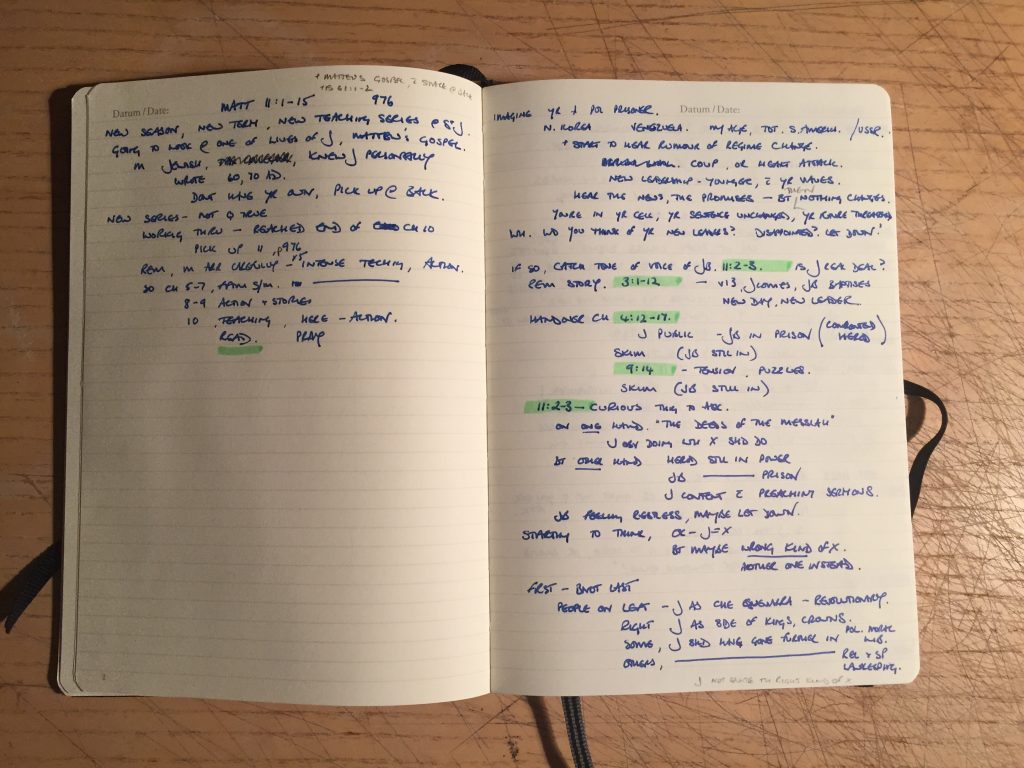
This is my most recent; dark blue or black ink for max visibility. A few months ago I made the rookie error of doing it pencil, and when I stood up in church I couldn’t read it! I ended up standing by the photocopier, running it through on the darkest setting to produce something legible.
My notes look pretty full, but I would be very familiar with them by the time I preach, and I feel quite free. I need the fuller format to take the guesswork out of my mind the third time around, though. It answers the question, ‘Have I told that story already?’ The highlighter is for when I want to read from the bible, so I can find my place again. If you can see pencil, it’s what was edited between the services.
What is your routine before preaching on a Sunday?
Ideally, I’m up with enough time for a decent Quiet Time, and to review the sermon. Team prayers at 8.25-40, then sorting out logistics, a quick clergy ‘pre-flight check’ at 9, after which I’m at the coffee point welcoming people till round about 9.29, for a 9.30 start. So until the service starts, it’s people, people, people.
Once the service has started, I’m focussing much more on the sermon. We’ll have around half an hour between the services, and I try to get away for about ten minutes to reset myself to do it again. A banana, some quiet, and I’m ready to do it again. I’m back home at around 1.30. The evening service has a similar pattern, and I’m on deck an hour before the service is due to begin.
What feedback structures do you utilise in improving on your preaching?
Clergy team meets on Monday, and we have a simple ‘What went well’ and ‘Even better if’ format. We sometimes read books together, to focus on particular areas, and currently we are looking at ‘Resonate’ by Nancy Duarte, to think about the shape of our sermons. This Christmas, I’m going to try giving the clergy team a sneak preview of the Carol service sermon, so I can get some hard feedback while there’s still time to change.
What areas are you currently seeking to develop in your preaching?
I’m always working at getting the text right, that is the one thing we must always be working at! Other than that, this year I have been through one of the CCEF Biblical Counselling modules, because I do find David Powlison, Ed Welch and Paul David Tripp enormously insightful on how the Bible changes us.
I have a little list of my preaching ‘heroes’, and continually select books that will make me more like one or other of them. And our team is thinking about the plot, or shape, of our sermons. Sermons are not just short lectures with a hymn at the end.
What do you do on the days your preaching did not go very well?
I never think it goes well!
I’m always aware of the choices I’ve had to make, the corners cut, and so forth. But after a while as a preacher you realise that the real task, which is raising the dead and making them Christlike, isn’t one you could do anyway. It’s not just difficult – it’s impossible for us. That’s God’s department, and we aren’t responsible for it. So we do our job, prayerfully and carefully, but know our place. John Chapman, the Australian evangelist, always used to ask himself, ‘Chappo, did you tell them about Jesus? Did you explain that from the Bible? Did you invite them to respond? Then go to bed.’ Wise advice. We do our work, and trust God to do the real work.
What one piece of advice would you pass on to someone starting out as a preacher?
Don’t get stuck in a groove! There are the obvious good, basic habits like careful text work, commentary work, and so on, and we should never move away from that. Stick at those for ever! But it’s so easy to become a deadly dull, one-note player, when there’s such a wide variety of models to learn from. Spend a year devouring everything from Lloyd Jones, until you’re inside his way of handling the task, and then switch to a John Ortberg or a Matt Chandler. Listen, don’t just read, and listen to how they do it, as well as what they’re saying. Analyse their game-plan and how they keep you attentive. Think about your work. Remain an apprentice, and take a different master each year.
What are some of the best resources you have found on preaching?
I have about a hundred books on preaching on my shelves, and I think I’ve learned something from almost all of them. Any of the books by the great ones (Stott, Spurgeon, Lloyd Jones, Keller) will be worth reading, by default. I was hugely impacted by Rick Warren about fifteen years ago, because of his commitment to simplicity and clarity. But the best resources will simply be the books by the best preachers, written at the peak of their ministries, reflecting on the task. Any book like that is worth paying careful attention to.
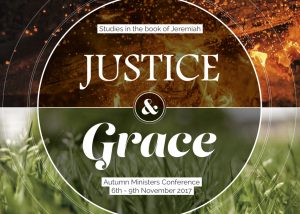
Chris Green is one of the speakers at our Autumn Ministers Conference 6th-9th of November. Chris will be helping us in preaching the book of Jeremiah.
Proclaimer Blog
With Added Plussness

Last week I had the tremendous privilege of getting to go on the Cornhill Plus Conference. This is a four day conference which kicks off the beginning of every new Cornhill Plus year. It is an opportunity for teaching, fellowship, prayer and reflection, as well as setting the trajectory for the coming years individual learning programme.
It was a small but eclectic mix of people, some who are in their second and third years of Cornhill Plus, a couple who were new to it. They also came from a variety of different ministry situations, student workers, youth workers, assistant ministers and pastoral assistants. It was a great time in the idyllic settings of Hothorpe Hall near Market Harborough.

The main topic for the four days was Leadership, with Bible studies on 1&2 Timothy and two sessions of reflections from Richard Underwood the long time, soon to retire Pastoral Director at FIEC. He spoke very compellingly on John 13 with 5 challenges for leaders.
We also had a book review session, a discussion around A Better Story by Glynn Harrison, walks in Foxton Locks and some weird and wonderful board games. It really was a fruitful and edifying time.
Huge thanks to Steve Wilmshurst for all his work in putting the conference together. Also please continue to pray for Tim, Nick, Susan, Mel & James as they serve in local churches and study alongside. Please also pray for Cornhill Plus going forward that it would grow and continue to be a real blessing to those forging ahead in gospel ministry.
Proclaimer Blog
The adventures of David Jackman [PT Trustee and former Director of Cornhill]
From September 28th to October 2nd, two of our trustees of PT, John Samuel and David Jackman plan to be in Bielice in Southern Poland for an introductory preaching conference. This will be the third workshop of this sort to be held in Poland under the auspices of the local equivalent of “Together for the Gospel”, in the last 18 months. After David met a group of Polish pastors at EMA 2015, they came across to London for a training workshop and three introductory workshops have now been held in Poland (with translation!) in different areas of the country. There was also a follow-up conference on Teaching Ephesians held this past Spring for those who attended the first of the introduction workshops.

At this upcoming conference, we are expecting about 50 participants, with a varying degree of familiarity with the basics of expository preaching. David and John would particularly value your prayers for many of those attending to be gripped by the sufficiency of Scripture, the power of expository preaching and that ministries and local churches will begin to be renewed through pastors participating in the workshop. Pray for lasting change and for the Lord to raise up some younger men who will themselves become practitioners and trainers of faithful Word ministry.
We are praying that the Lord will guide us at PT to see how we might help similarly in other European contexts to support and equip Biblical preachers who often lack resources, fellowship and the sort of convictions that produce hard work and perseverance. It would be wonderful if a number of well-equipped British pastors were able to adopt a European situation and visit annually for a few years to be able to develop networks of like-minded Bible preachers and even see training programmes developing in places where resources are currently meagre or non-existent.
Supporting this initiative around the world is the purpose of David Jackman’s new video training series “Equipped to preach the Word“. There are currently two modules available online dealing with the basic principles and skills needed for faithful Biblical preaching. Each module has 8 units, each of which comprises a short instructional video talk, followed by downloadable written materials in a workbook format, enabling practical example and training exercises to be worked through in order to practise the principles, either in personal study or as a group. All this is entirely free of charge.

This autumn David is writing the third and final module which will focus on preaching Christ in all the Scriptures and also address issues of relevance and application in preaching. Please pray for God’s clear direction in the contents of both video script and the workbook and that the editing and filming will be provided for financially, as this project is funded separately from central PT funds.
So far we know of 2,000 downloads of workbooks, which is at least an indication of intention to use the materials, nearly 50 countries have been involved. The material is also readily available as a USB stick which can be obtained on request from the PT office. Visit the PT website.
Proclaimer Blog
The adventures to Neil Watkinson [International Director]
In March this year, PT’s International Director, Neil Watkinson, visited five countries in Southern and Eastern Africa, to look at various preaching and Bible training colleges and initiatives which have connections with PT.

His first stop was at Johannesburg Bible College, where several of the staff did Cornhill. Next was the Proclamation Institute Zambia, which is only in its second year but has grown quickly. (A former Cornhiller, Chris Hawthorne, and his family are due to move there next summer).
In Rwanda, Neil caught up with several Cornhillers who have been running Preach The Word, a weekend-based Bible training programme. They have also planted a new church, rooted in expository ministry, and modelling God’s Word should shape ministry in the local church. Next stop was a visit to iServe Africa, in Kenya’s capital Nairobi, seeing more Cornhillers applying what they learned from their training in the UK. The final few days of the trip were spent in Kampala at Living Word Uganda.

Neil said: “A common challenge for these gospel workers and teachers is the prevalence of the so-called ‘prosperity gospel’. I’d been aware of this false teaching, but hadn’t realised just how widespread it is, and how much of the African church is affected by it. Thankfully this is being matched by an eagerness among young preachers and teachers who want to understand and teach the Bible well. It was encouraging to see firsthand the vital work that local and overseas trainers are doing. Please pray for the continuance and propagation of such faithful Bible training and godly leadership.”
In the coming months Neil will be travelling to SE Asia again to equip Bible teachers and preachers, alongside others.
Neil is also running some Cross Cultural Preaching Training at Willcox House. The September date is full, but there are still a few places left on the training day on the 11th October, see the website for details…
Proclaimer Blog
Dealing with Disappointment – [John Hindley]
Written by the same author as the excellent Serving without Sinking & You Can Really Grow. Dealing with Disappointment takes an honest look at an issue that faces many, if not all, Christians. What do we do when we feel that things just aren’t turning out the way we wanted or expected?
Taking what John Hindley describes as the ‘disturbing, intriguing and attractive‘ opening to Ecclesiastes as his starting point, the book falls into two halves. Six short chapters tackle our perspective on disappointment, with a very helpful focus on reorienting our thinking in light of Christ’s return and the new creation. Then there are a further six chapters considering specific areas of life where we might be disappointed, including disappointment with ministry, ourselves and our situations.
The book is particularly strong on what you might call ‘ordinary disappointment’ – the general corrosive feeling that life could or should be better. The baseline level of disappointment that is bubbling away under the surface of many of our lives, unrealised dreams, unfulfilled longings, uneventful lives. This book would be a great accompaniment alongside something like Christopher Ash’s book Job: Out of the Storm. Dealing with Disappointment a great aid in coping with ordinary disappointment and Out of the Storm really diving into deep and tragic disappointment, they would make a very potent pair.

I loved the kind, pastoral and down-to-earth way in which John Hindley writes (he is unsparing about his own struggles), making this a real and easy book to pass on to others. It’s also a book written with discussion in mind, and would suit book groups or home groups looking to read a Christian book together.
Take the home group challenge suggested at the end of the book if you dare!
Useful for: Pastors and specific people who are disappointed with life, also useful for people involved in pastoral care.
Reading level: Very accessible and easy to read.
Length: 160 pages
Price: RRP £7.99
ISBN: 9781784981204
Publisher: The Good Book Company
Rating: ****
Cautions: might be a bit superficial for those wrestling with deep and long term disappointments/regrets.
Review by Elisabeth Jelfs
Proclaimer Blog
God and the Transgender Debate – [Andrew T. Walker]
Before a Tsunami hits the tide goes out a long way. When you see the tide go out it is time to get ready for the wave to hit.

All too often the Christian church has waited for the wave to hit before thinking through the issue at hand. For the last 30 years we have all too often been playing catch up and reacting to societal shifts rather than proactively applying Biblical wisdom to the twists and turns of cultural trends.
However, with the fluid nature of society in our present time, we are very grateful to thinkers who are helping get on and even ahead of the curve. Forewarned is certainly forearmed when a shifting society starts to slide.
Andrew T. Walker in his meaty book, ‘God and the Transgender Debate’, has done us a great service in helping us think through the latest wave that is breaking in our Western World. Andrew serves as the Director of Policy with the Ethics and Religious Liberty Commission and is well positioned to write such a volume.
It is best described as a book in 3 parts.
After introductory material giving the lay of the land, Andrew dives straight into Genesis 1-3 and gives a detailed overview of human sexuality, God’s good design and the catastrophe and confusion that ripples out from the fall. This section is thoroughly Biblical, very clear and helpful. It says nothing particularly new but does a great job in showing how gender dysphoria is symptomatic in this sin infected world. There is also some really good material here on being made in God’s image and all that that means. Chapter 7 then fast forwards to the hope of a glorious future beyond the frustration and confusion of this world, all available in Jesus Christ. It is a compelling chapter that moves beyond coping and managing to discipleship, wholeness and hope.
Having laid this Biblical foundation Andrew then gets very pastoral firstly helping the reader think through how to love and serve gender dysphoric people both as individuals and also as churches. These are deeply convicting pastoral chapters and though they are specifically honed on the subject of transgender, the principles that Andrew highlights have much broader application. This section of the book is great and very thought provoking.
The final section of the book moves very specifically to practical things. Through case studies and worked examples Andrew starts to explore what repentance looks like, how to speak to children of various ages about these issues, whether you should make gender neutral toilets in your churches and other tough questions that are thrown up by this complex issue. Whilst you may not agree with all his conclusions, Andrew certainly shapes and sharpens thinking both with his clarity and depth of application.

I think in Western Society the tide is well and truly out and already the waves are beginning to break as the latest Tsunami of societal disorder begins to flood in. This book is of great value and help in thinking through this issue, it is informed, pastoral and practical. It filled in gaps in my knowledge and stretched my thinking. It is Biblically robust, well reasoned and sensitive. This is by far the most comprehensive book I have read on the transgender debate from a Christian viewpoint, and I would heartily recommend it to pastors, congregation members and the chapter on speaking to children to every parent in your church.
Whilst it is 174 pages long it is very well written and extremely readable.
Proclaimer Blog
God in Public [N.T. Wright]
In God in Public, the eminent New Testament scholar and former Bishop of Durham, Professor N.T. Wright attempts to utilise the Christian gospel for the political challenges of the modern world.
Wright sets the scene by describing, “a deep uncertainty about who we are and what we’re here for, and I suggest that this malaise is directly linked to the banishment of God from the public square two hundred years ago” (p2). And so in what is essentially a collection of lectures and talks, Wright seeks to reintroduce God and the Bible into the public sphere.
A highlight of the book is Wright’s insightful survey of intellectual and political history. The critique of secularism and the way he tracks the progress of the Western Enlightenment narrative is compelling and he pulls no punches in a damning indictment of Western democracy. It’s a refreshing antidote to the New Atheist rhetoric of our age (“religion” is the root of all evil) and Wright seeks to create a space for the gospel to provide clarity and a fresh sense of direction for public life.
To those concerned that this all sounds rather abstract, Wright duly supplies the concrete and practical examples to ground his discussion of “God in Public”. He uses examples of churches “doing God in public,” i.e. those looking after and defending the rights of asylum seekers, supporting the homeless etc. There are also lengthy examples given of Christian voices on the national and international stage. Wright rejects the privatisation of religion in favour of a church calling authorities to account and being active in society, particularly in defending the rights of the poor and marginalised. This is all framed with the Christian’s vocation in bringing to bear the “present-day meaning of Jesus’ universal kingship” and how Christians should be advancing Jesus’ kingdom project in the world. I reserve comment on Wright’s theological enterprise until later in the review, but, insofar as it seeks to dissuade the church from sticking its head in the sand or retreating underground, it serves as a valuable reminder for Christians to be a light to the world.
For those interested in the more philosophical underpinnings of today’s (post)modern world, Wright offers a fascinating theological response to the ills of postmodernism. After exposing the contradictions in postmodern theory and its treatment of the Bible, Wright ingeniously utilises the terms of the debate to introduce the Bible as the great meta-narrative that challenges and subverts other worldviews. He sketches a biblical challenge to post-modernity, in the form of a meta-narrative of love that cannot be deconstructed into selfish power (because it is quite the opposite), and a biblical account of human knowing (an epistemology of love) that goes beyond the polarisation of objectivism and subjectivism.
Wright believes that a fresh engagement with the biblical narrative will provide an account of human knowing and truth that the “post-postmodern” world so desperately needs. It’s a bold and intellectually stimulating part of the book. It does however run the risk of overwhelming those not overly familiar with the terms and concepts, and also on the other side, it risks disappointing those well versed who will see it as far too sketchy and lacking the necessary detail to expound a thoroughly convincing philosophical argument.
How we as Evangelicals should approach Wright’s theology in the book deserves an essay in itself, but I can offer some cursory remarks here. The truth Wright is calling Christians to speak to power seems a diluted, politicized gospel that does not emphasize the centrality of the Cross and the related doctrines such as atonement for sin. Rather tellingly, Wright states that “if the church can translate what we believe Jesus would say into the language, and the coherent arguments, of the wider world then such obedience can become a possibility” (p.72). Thus Wright’s primary aim is not to make Christ known; it is rather to bring about just and merciful rulers and authorities, and if that means stripping out what is distinctly Christian to achieve that end, then so be it. Despite Wright calling rulers to justice and mercy “within the framework of the historical victory of Jesus in his death and resurrection and of the future, coming, final victory of God over all evil” (p.72), these rulers need not recognise their own sin or Jesus as their Lord and Saviour. Surely this is putting the cart before the horse and blurring the fruit of the gospel and the root of the gospel.
To bring about God’s kingdom on earth as it is in heaven, we first need to bring these rulers to the foot of the Cross. It is by the Cross-Centered preaching of the gospel that brings the truth that will ultimately save the world, rather than a diluted gospel that will merely bring temporal social justice and keep authorities in check.
When sin is mentioned, it feels like it is for the sake of completion as opposed to it being a central and foundational part of biblical truth. Wright even goes as far as to suggest a pluralistic, “fresh grasp of God’s truth” (p.95) with Christian, Jewish and Muslim voices at the table speaking for “God” in the public square.
Furthermore, Wright indirectly targets and seeks to unsettle traditional evangelicalism at various points in the book. For example, he rather disparagingly describes how “some people seem to yearn for the days when things were nice and simple, when a supposedly biblical gospel of salvation from sin and going to heaven could be preached” (p.37). He hangs out to dry a “type of conservative Christianity represented by the “not of this world” viewpoint” (p.64); he provocatively tries to relegate atonement theology in the gospels; admits to advocating a “controversial” (p.67) reading of Scripture as part of his world-affirming, Jewish messianic framing of the Christian narrative that he stands against “semi- or crypto- gnostic readings”. He takes various other swipes against what are essentially caricatures of Evangelical standpoints (e.g. “personal salvation”, “going to heaven” etc.).
Though this book is not from the conservative evangelical stable there is still much value to be gleaned from this book and Wright’s theology. Wright offers a vivid, rich account of the resurrection and he is very helpful on eschatology and new creation in the present day vocation of Christians to be image-bearers and stewards of creation. Wright also provides a helpful analysis of God’s sovereignty in the midst of tyrannous order, and a particularly intriguing section on how Jesus’ death shines light on the concepts of truth and authority.
Overall, for those wanting a bold and intellectually stimulating theological response to “we don’t do God” politics, Wright’s God in Public will not disappoint. For those disheartened by the marginalisation of God and the church in the public sphere, this book will provide plenty of resources for fruitful engagement and insight. However, while it might introduce a fascinating and at times compelling political theology, people, as with everything should read discerningly and be cautious of wholeheartedly adopting Wright’s contentious biblical framework.
I close with some words from the Apostle Paul from 1 Corinthians 2:2-8 – And I, when I came to you, brothers, did not come proclaiming to you the testimony of God with lofty speech or wisdom. For I decided to know nothing among you except Jesus Christ and him crucified. And I was with you in weakness and in fear and much trembling, and my speech and my message were not in plausible words of wisdom, but in demonstration of the Spirit and of power, so that your faith might not rest in the wisdom of men but in the power of God. Yet among the mature we do impart wisdom, although it is not a wisdom of this age or of the rulers of this age, who are doomed to pass away. But we impart a secret and hidden wisdom of God, which God decreed before the ages for our glory. None of the rulers of this age understood this, for if they had, they would not have crucified the Lord of glory.
By Simon Jones

